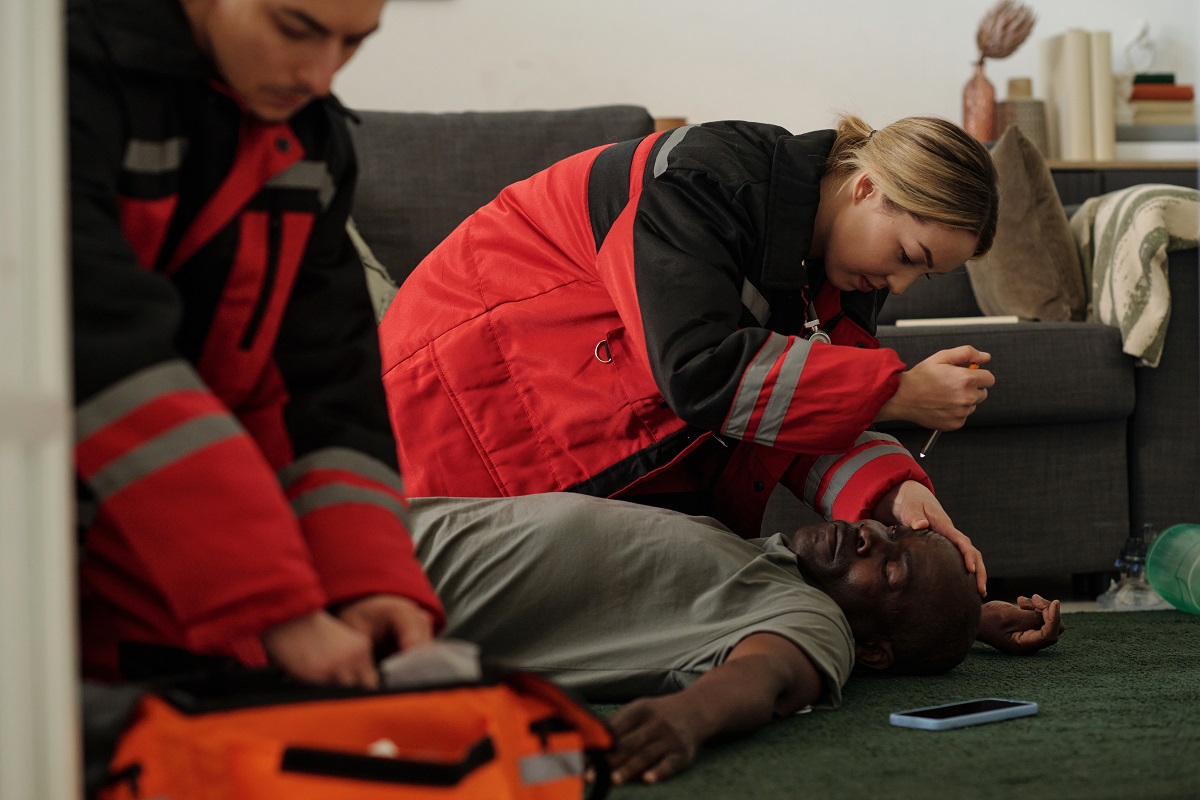
CPR training should be considered mandatory. CPR knowledge is vital as most cardiac arrests take place outside hospitals. Without immediate assistance, victims could suffer brain damage or die as a result.
How to Become Certified
CPR certification can be obtained by attending or recertification classes offered by American Heart Association-affiliated CPR/AED providers and will result in the receipt of a two-year certification of completion certificate.
Key Takeaways
- CPR involves mouth-to-mouth and chest compression techniques.
- Your family could be at risk in case of a cardiac emergency at home.
- Rescue breathing techniques are taught as part of CPR courses to assist those who have stopped breathing in restarting it.
- Studies conducted by the American Heart Association estimate that CPR saves an estimated 220,000 lives every year. Trained CPR providers can administer high-quality CPR to increase survival chances for victims.
- CPR training may not be essential, but possessing knowledge can prove extremely helpful in an emergency situation.
- Assisting during cardiac emergencies doesn’t require medical expertise or special training; even amateurs can save lives!
- Though chest compressions cannot restore normal pulse rates, they do help distribute oxygen to vital organs.
- CPR training should not only be available to physicians and medical professionals. Anyone can learn CPR.
CPR and First Aid Certificate
Healthcare providers who wish to become healthcare providers will find CPR training invaluable, as it can be applied by adults, children, and infants alike. AED training is also included.
CPR 2020 guidelines provide instruction in cutting-edge techniques for choking relief.
Early CPR increases survival chances during cardiac emergencies; even three minutes’ delay could prove fatal.
Why it is Important to Get CPR Certified
1. CPR Saves Lives
Being trained in CPR doesn’t require being a medical professional – more people trained could help save more lives! CPR training could save lives in an emergency if more were provided.
Before emergency services arrive, CPR could give the victim a greater chance of survival.
Your efforts could save the lives of loved ones by helping to prevent cardiac emergencies at home.
CPR provides essential life saving support during cardiac emergencies when the heart cannot deliver sufficient blood to the body. By creating an artificial heartbeat, CPR allows blood flow to continue.
Oxygen delivery to vital organs and the brain, in particular, ensures cell deaths do not occur as rapidly, protecting against brain damage that could otherwise happen within minutes if not given sufficient oxygen.
2. Anyone Can Attend CPR Training
CPR training is open and accessible to everyone regardless of age or education status, leaving no excuse not to become certified in CPR.
Anyone can save lives with the right knowledge. Classes are offered both in-person and online for maximum flexibility.
Online CPR training can be completed from home with only a computer, Internet access, and printer required for completion.
Participants completing the course are required to pass an online examination in order to receive their certificate, valid for two years.
Renewal of certification online is available to those whose certificates have expired.
3. Practice Rescue Breathing
CPR courses teach rescue breathing to revive those who have stopped breathing, helping restore vital signs and restore respiration.
This device can be utilized in cases such as asthma attacks, carbon monoxide poisoning, and choking.
When victims need oxygen, they can breathe through either their nose or mouth.
CPR training teaches individuals how to breathe safely when breathing in and out.
If there is no mouth barrier present, hands-only CPR should be performed until assistance arrives.
4. Emergencies can strike at any time and place.
CPR cannot always be administered by those lacking proper skills and training, therefore experts in performing it must always be available when needed.
According to the American Heart Association, effective CPR can save over 200,000 lives annually.
CPR is essential in cases of cardiac emergencies that arise outside hospital settings.
Few people are CPR-certified, yet many die of sudden cardiac arrests every year. CPR certification should be seen as vital; emergencies may arise at any time.
5. CPR Prevents Brain Death
Without oxygen reaching the brain, permanent brain damage may ensue. CPR prevents this situation.
Chest compressions help ensure enough oxygen reaches the brain and are an effective way of protecting brain cells from dying off prematurely.
Brain damage may result in victims becoming bedridden and incapable of carrying out their daily activities without CPR intervention.
6. Confidence Can Save Lives
The confidence gained from CPR training is essential when handling emergencies.
Each second that passes without CPR increases the risk of death.
Many individuals fear helping out for fear it will do more damage than good.
CPR certification gives you the skills to make a real impactful difference in people’s lives.
7. Recognize Cardiac Arrest Early
Early recognition of cardiac arrest can save lives.
Recognizing the symptoms can allow trained individuals to provide timely medical aid before professional assistance arrives.
CPR training will teach you to recognize signs of life and initiate CPR when necessary.
Untrained bystanders could make errors in diagnosing the situation and lower a victim’s chance of survival.
8. Enhance Your Self-Worth
Certification in CPR can bolster both your confidence and skill set.
CPR training equips you with crucial lifesaving abilities in an emergency.
Saving someone’s life and their loved ones is sure to leave you feeling accomplished and proud of your efforts.
Feeling guilty for not being able to assist with CPR is understandable when someone’s life is at stake without CPR available nearby.
9. CPR Certification Broadens Job Prospects
CPR is required of many careers such as lifeguarding and security officers. Obtaining CPR certification increases job prospects.
CPR certification will also set you apart when searching for employment.
CPR certification is only accessible to approximately three percent of American workers, making it one of the most highly valued skills among employers. Achieve CPR certification reassures potential employers that an employee has emergency situation management skills on hand during work duties.
10. Provide Hope In Emergencies
CPR-trained people can offer hope during medical emergencies.
CPR training will equip you with the ability to respond calmly in health crises, which will reassure those around you.
Skilled responders increase survival odds and decrease anxiety during an emergency situation.
An experienced person can bring calm to the situation and instill confidence among victims’ family members.
Final Words
CPR certification is an invaluable skill that could save lives in emergency situations.

